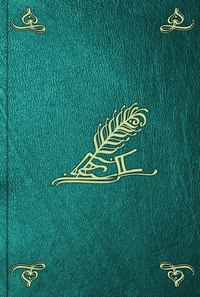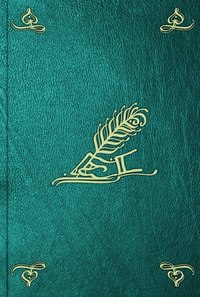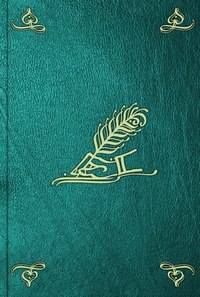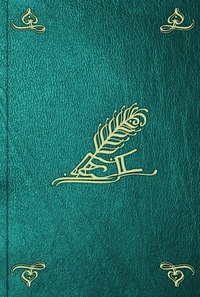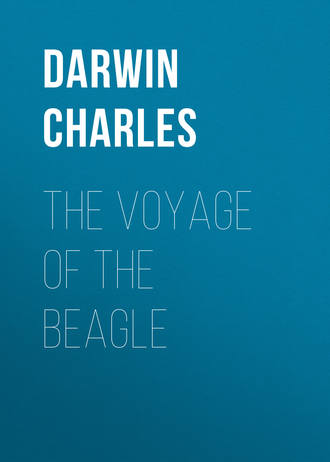 полная версия
полная версияThe Voyage of the Beagle
October 16th. – Some leagues below Rozario, the western shore of the Parana is bounded by perpendicular cliffs, which extend in a long line to below San Nicolas; hence it more resembles a sea-coast than that of a fresh-water river. It is a great drawback to the scenery of the Parana, that, from the soft nature of its banks, the water is very muddy. The Uruguay, flowing through a granitic country, is much clearer; and where the two channels unite at the head of the Plata, the waters may for a long distance be distinguished by their black and red colours. In the evening, the wind being not quite fair, as usual we immediately moored, and the next day, as it blew rather freshly, though with a favouring current, the master was much too indolent to think of starting. At Bajada, he was described to me as "hombre muy aflicto" – a man always miserable to get on; but certainly he bore all delays with admirable resignation. He was an old Spaniard, and had been many years in this country. He professed a great liking to the English, but stoutly maintained that the battle of Trafalgar was merely won by the Spanish captains having been all bought over; and that the only really gallant action on either side was performed by the Spanish admiral. It struck me as rather characteristic, that this man should prefer his countrymen being thought the worst of traitors, rather than unskilful or cowardly.
18th and 19th. – We continued slowly to sail down the noble stream: the current helped us but little. We met, during our descent, very few vessels. One of the best gifts of nature, in so grand a channel of communication, seems here wilfully thrown away – a river in which ships might navigate from a temperate country, as surprisingly abundant in certain productions as destitute of others, to another possessing a tropical climate, and a soil which, according to the best of judges, M. Bonpland, is perhaps unequalled in fertility in any part of the world. How different would have been the aspect of this river if English colonists had by good fortune first sailed up the Plata! What noble towns would now have occupied its shores! Till the death of Francia, the Dictator of Paraguay, these two countries must remain distinct, as if placed on opposite sides of the globe. And when the old bloody-minded tyrant is gone to his long account, Paraguay will be torn by revolutions, violent in proportion to the previous unnatural calm. That country will have to learn, like every other South American state, that a republic cannot succeed till it contains a certain body of men imbued with the principles of justice and honour.
October 20th. – Being arrived at the mouth of the Parana, and as I was very anxious to reach Buenos Ayres, I went on shore at Las Conchas, with the intention of riding there. Upon landing, I found to my great surprise that I was to a certain degree a prisoner. A violent revolution having broken out, all the ports were laid under an embargo. I could not return to my vessel, and as for going by land to the city, it was out of the question. After a long conversation with the commandant, I obtained permission to go the next day to General Rolor, who commanded a division of the rebels on this side the capital. In the morning I rode to the encampment. The general, officers, and soldiers, all appeared, and I believe really were, great villains. The general, the very evening before he left the city, voluntarily went to the Governor, and with his hand to his heart, pledged his word of honour that he at least would remain faithful to the last. The general told me that the city was in a state of close blockade, and that all he could do was to give me a passport to the commander-in-chief of the rebels at Quilmes. We had therefore to take a great sweep round the city, and it was with much difficulty that we procured horses. My reception at the encampment was quite civil, but I was told it was impossible that I could be allowed to enter the city. I was very anxious about this, as I anticipated the Beagle's departure from the Rio Plata earlier than it took place. Having mentioned, however, General Rosas's obliging kindness to me when at the Colorado, magic itself could not have altered circumstances quicker than did this conversation. I was instantly told that though they could not give me a passport, if I chose to leave my guide and horses, I might pass their sentinels. I was too glad to accept of this, and an officer was sent with me to give directions that I should not be stopped at the bridge. The road for the space of a league was quite deserted. I met one party of soldiers, who were satisfied by gravely looking at an old passport: and at length I was not a little pleased to find myself within the city.
This revolution was supported by scarcely any pretext of grievances: but in a state which, in the course of nine months (from February to October, 1820), underwent fifteen changes in its government – each governor, according to the constitution, being elected for three years – it would be very unreasonable to ask for pretexts. In this case, a party of men – who, being attached to Rosas, were disgusted with the governor Balcarce – to the number of seventy left the city, and with the cry of Rosas the whole country took arms. The city was then blockaded, no provisions, cattle or horses, were allowed to enter; besides this, there was only a little skirmishing, and a few men daily killed. The outside party well knew that by stopping the supply of meat they would certainly be victorious. General Rosas could not have known of this rising; but it appears to be quite consonant with the plans of his party. A year ago he was elected governor, but he refused it, unless the Sala would also confer on him extraordinary powers. This was refused, and since then his party have shown that no other governor can keep his place. The warfare on both sides was avowedly protracted till it was possible to hear from Rosas. A note arrived a few days after I left Buenos Ayres, which stated that the General disapproved of peace having been broken, but that he thought the outside party had justice on their side. On the bare reception of this, the Governor, ministers, and part of the military, to the number of some hundreds, fled from the city. The rebels entered, elected a new governor, and were paid for their services to the number of 5500 men. From these proceedings, it was clear that Rosas ultimately would become the dictator: to the term king, the people in this, as in other republics, have a particular dislike. Since leaving South America, we have heard that Rosas has been elected, with powers and for a time altogether opposed to the constitutional principles of the republic.
CHAPTER VIII
BANDA ORIENTAL AND PATAGONIAExcursion to Colonia del Sacramiento – Value of an Estancia – Cattle, how counted – Singular Breed of Oxen – Perforated Pebbles – Shepherd Dogs – Horses broken-in, Gauchos riding – Character of Inhabitants – Rio Plata – Flocks of Butterflies – Aeronaut Spiders – Phosphorescence of the Sea – Port Desire – Guanaco – Port St. Julian – Geology of Patagonia – Fossil gigantic Animal – Types of Organization constant – Change in the Zoology of America – Causes of Extinction.
HAVING been delayed for nearly a fortnight in the city, I was glad to escape on board a packet bound for Monte Video. A town in a state of blockade must always be a disagreeable place of residence; in this case moreover there were constant apprehensions from robbers within. The sentinels were the worst of all; for, from their office and from having arms in their hands, they robbed with a degree of authority which other men could not imitate.
Our passage was a very long and tedious one. The Plata looks like a noble estuary on the map; but is in truth a poor affair. A wide expanse of muddy water has neither grandeur nor beauty. At one time of the day, the two shores, both of which are extremely low, could just be distinguished from the deck. On arriving at Monte Video I found that the Beagle would not sail for some time, so I prepared for a short excursion in this part of Banda Oriental. Everything which I have said about the country near Maldonado is applicable to Monte Video; but the land, with the one exception of the Green Mount 450 feet high, from which it takes its name, is far more level. Very little of the undulating grassy plain is enclosed; but near the town there are a few hedge-banks, covered with agaves, cacti, and fennel.
November 14th. – We left Monte Video in the afternoon. I intended to proceed to Colonia del Sacramiento, situated on the northern bank of the Plata and opposite to Buenos Ayres, and thence, following up the Uruguay, to the village of Mercedes on the Rio Negro (one of the many rivers of this name in South America), and from this point to return direct to Monte Video. We slept at the house of my guide at Canelones. In the morning we rose early, in the hopes of being able to ride a good distance; but it was a vain attempt, for all the rivers were flooded. We passed in boats the streams of Canelones, St. Lucia, and San Jose, and thus lost much time. On a former excursion I crossed the Lucia near its mouth, and I was surprised to observe how easily our horses, although not used to swim, passed over a width of at least six hundred yards. On mentioning this at Monte Video, I was told that a vessel containing some mountebanks and their horses, being wrecked in the Plata, one horse swam seven miles to the shore. In the course of the day I was amused by the dexterity with which a Gaucho forced a restive horse to swim a river. He stripped off his clothes, and jumping on its back, rode into the water till it was out of its depth; then slipping off over the crupper, he caught hold of the tail, and as often as the horse turned round the man frightened it back by splashing water in its face. As soon as the horse touched the bottom on the other side, the man pulled himself on, and was firmly seated, bridle in hand, before the horse gained the bank. A naked man on a naked horse is a fine spectacle; I had no idea how well the two animals suited each other. The tail of a horse is a very useful appendage; I have passed a river in a boat with four people in it, which was ferried across in the same way as the Gaucho. If a man and horse have to cross a broad river, the best plan is for the man to catch hold of the pommel or mane, and help himself with the other arm.
We slept and stayed the following day at the post of Cufre. In the evening the postman or letter-carrier arrived. He was a day after his time, owing to the Rio Rozario being flooded. It would not, however, be of much consequence; for, although he had passed through some of the principal towns in Banda Oriental, his luggage consisted of two letters! The view from the house was pleasing; an undulating green surface, with distant glimpses of the Plata. I find that I look at this province with very different eyes from what I did upon my first arrival. I recollect I then thought it singularly level; but now, after galloping over the Pampas, my only surprise is, what could have induced me ever to call it level. The country is a series of undulations, in themselves perhaps not absolutely great, but, as compared to the plains of St. Fe, real mountains. From these inequalities there is an abundance of small rivulets, and the turf is green and luxuriant.
November 17th. – We crossed the Rozario, which was deep and rapid, and passing the village of Colla, arrived at midday at Colonia del Sacramiento. The distance is twenty leagues, through a country covered with fine grass, but poorly stocked with cattle or inhabitants. I was invited to sleep at Colonia, and to accompany on the following day a gentleman to his estancia, where there were some limestone rocks. The town is built on a stony promontory something in the same manner as at Monte Video. It is strongly fortified, but both fortifications and town suffered much in the Brazilian war. It is very ancient; and the irregularity of the streets, and the surrounding groves of old orange and peach trees, gave it a pretty appearance. The church is a curious ruin; it was used as a powder-magazine, and was struck by lightning in one of the ten thousand thunderstorms of the Rio Plata. Two-thirds of the building were blown away to the very foundation; and the rest stands a shattered and curious monument of the united powers of lightning and gunpowder. In the evening I wandered about the half-demolished walls of the town. It was the chief seat of the Brazilian war; – a war most injurious to this country, not so much in its immediate effects, as in being the origin of a multitude of generals and all other grades of officers. More generals are numbered (but not paid) in the United Provinces of La Plata than in the United Kingdom of Great Britain. These gentlemen have learned to like power, and do not object to a little skirmishing. Hence there are many always on the watch to create disturbance and to overturn a government which as yet has never rested on any staple foundation. I noticed, however, both here and in other places, a very general interest in the ensuing election for the President; and this appears a good sign for the prosperity of this little country. The inhabitants do not require much education in their representatives; I heard some men discussing the merits of those for Colonia; and it was said that, "although they were not men of business, they could all sign their names: " with this they seemed to think every reasonable man ought to be satisfied.
18th. – Rode with my host to his estancia, at the Arroyo de San Juan. In the evening we took a ride round the estate: it contained two square leagues and a half, and was situated in what is called a rincon; that is, one side was fronted by the Plata, and the two others guarded by impassable brooks. There was an excellent port for little vessels, and an abundance of small wood, which is valuable as supplying fuel to Buenos Ayres. I was curious to know the value of so complete an estancia. Of cattle there were 3000, and it would well support three or four times that number; of mares 800, together with 150 broken-in horses, and 600 sheep. There was plenty of water and limestone, a rough house, excellent corrals, and a peach orchard. For all this he had been offered 2000 Pounds, and he only wanted 500 Pounds additional, and probably would sell it for less. The chief trouble with an estancia is driving the cattle twice a week to a central spot, in order to make them tame, and to count them. This latter operation would be thought difficult, where there are ten or fifteen thousand head together. It is managed on the principle that the cattle invariably divide themselves into little troops of from forty to one hundred. Each troop is recognized by a few peculiarly marked animals, and its number is known: so that, one being lost out of ten thousand, it is perceived by its absence from one of the tropillas. During a stormy night the cattle all mingle together; but the next morning the tropillas separate as before; so that each animal must know its fellow out of ten thousand others.
On two occasions I met with in this province some oxen of a very curious breed, called nata or niata. They appear externally to hold nearly the same relation to other cattle, which bull or pug dogs do to other dogs. Their forehead is very short and broad, with the nasal end turned up, and the upper lip much drawn back; their lower jaws project beyond the upper, and have a corresponding upward curve; hence their teeth are always exposed. Their nostrils are seated high up and are very open; their eyes project outwards. When walking they carry their heads low, on a short neck; and their hinder legs are rather longer compared with the front legs than is usual. Their bare teeth, their short heads, and upturned nostrils give them the most ludicrous self-confident air of defiance imaginable.
Since my return, I have procured a skeleton head, through the kindness of my friend Captain Sulivan, R. N., which is now deposited in the College of Surgeons. 82 Don F. Muniz, of Luxan, has kindly collected for me all the information which he could respecting this breed. From his account it seems that about eighty or ninety years ago, they were rare and kept as curiosities at Buenos Ayres. The breed is universally believed to have originated amongst the Indians southward of the Plata; and that it was with them the commonest kind. Even to this day, those reared in the provinces near the Plata show their less civilized origin, in being fiercer than common cattle, and in the cow easily deserting her first calf, if visited too often or molested. It is a singular fact that an almost similar structure to the abnormal 83 one of the niata breed, characterizes, as I am informed by Dr. Falconer, that great extinct ruminant of India, the Sivatherium. The breed is very true; and a niata bull and cow invariably produce niata calves. A niata bull with a common cow, or the reverse cross, produces offspring having an intermediate character, but with the niata characters strongly displayed: according to Senor Muniz, there is the clearest evidence, contrary to the common belief of agriculturists in analogous cases, that the niata cow when crossed with a common bull transmits her peculiarities more strongly than the niata bull when crossed with a common cow. When the pasture is tolerably long, the niata cattle feed with the tongue and palate as well as common cattle; but during the great droughts, when so many animals perish, the niata breed is under a great disadvantage, and would be exterminated if not attended to; for the common cattle, like horses, are able just to keep alive, by browsing with their lips on twigs of trees and reeds; this the niatas cannot so well do, as their lips do not join, and hence they are found to perish before the common cattle. This strikes me as a good illustration of how little we are able to judge from the ordinary habits of life, on what circumstances, occurring only at long intervals, the rarity or extinction of a species may be determined.
November 19th. – Passing the valley of Las Vacas, we slept at a house of a North American, who worked a lime-kiln on the Arroyo de las Vivoras. In the morning we rode to a protecting headland on the banks of the river, called Punta Gorda. On the way we tried to find a jaguar. There were plenty of fresh tracks, and we visited the trees, on which they are said to sharpen their claws; but we did not succeed in disturbing one. From this point the Rio Uruguay presented to our view a noble volume of water. From the clearness and rapidity of the stream, its appearance was far superior to that of its neighbour the Parana. On the opposite coast, several branches from the latter river entered the Uruguay. As the sun was shining, the two colours of the waters could be seen quite distinct.
In the evening we proceeded on our road towards Mercedes on the Rio Negro. At night we asked permission to sleep at an estancia at which we happened to arrive. It was a very large estate, being ten leagues square, and the owner is one of the greatest landowners in the country. His nephew had charge of it, and with him there was a captain in the army, who the other day ran away from Buenos Ayres. Considering their station, their conversation was rather amusing. They expressed, as was usual, unbounded astonishment at the globe being round, and could scarcely credit that a hole would, if deep enough, come out on the other side. They had, however, heard of a country where there were six months of light and six of darkness, and where the inhabitants were very tall and thin! They were curious about the price and condition of horses and cattle in England. Upon finding out we did not catch our animals with the lazo, they cried out, "Ah, then, you use nothing but the bolas: " the idea of an enclosed country was quite new to them. The captain at last said, he had one question to ask me, which he should be very much obliged if I would answer with all truth. I trembled to think how deeply scientific it would be: it was, "Whether the ladies of Buenos Ayres were not the handsomest in the world." I replied, like a renegade, "Charmingly so." He added, "I have one other question: Do ladies in any other part of the world wear such large combs?" I solemnly assured him that they did not. They were absolutely delighted. The captain exclaimed, "Look there! a man who has seen half the world says it is the case; we always thought so, but now we know it." My excellent judgment in combs and beauty procured me a most hospitable reception; the captain forced me to take his bed, and he would sleep on his recado.
21st. – Started at sunrise, and rode slowly during the whole day. The geological nature of this part of the province was different from the rest, and closely resembled that of the Pampas. In consequence, there were immense beds of the thistle, as well as of the cardoon: the whole country, indeed, may be called one great bed of these plants. The two sorts grow separate, each plant in company with its own kind. The cardoon is as high as a horse's back, but the Pampas thistle is often higher than the crown of the rider's head. To leave the road for a yard is out of the question; and the road itself is partly, and in some cases entirely closed. Pasture, of course there is none; if cattle or horses once enter the bed, they are for the time completely lost. Hence it is very hazardous to attempt to drive cattle at this season of the year; for when jaded enough to face the thistles, they rush among them, and are seen no more. In these districts there are very few estancias, and these few are situated in the neighbourhood of damp valleys, where fortunately neither of these overwhelming plants can exist. As night came on before we arrived at our journey's end, we slept at a miserable little hovel inhabited by the poorest people. The extreme though rather formal courtesy of our host and hostess, considering their grade of life, was quite delightful.
November 22nd. – Arrived at an estancia on the Berquelo belonging to a very hospitable Englishman, to whom I had a letter of introduction from my friend Mr. Lumb. I stayed here three days. One morning I rode with my host to the Sierra del Pedro Flaco, about twenty miles up the Rio Negro. Nearly the whole country was covered with good though coarse grass, which was as high as a horse's belly; yet there were square leagues without a single head of cattle. The province of Banda Oriental, if well stocked, would support an astonishing number of animals, at present the annual export of hides from Monte Video amounts to three hundred thousand; and the home consumption, from waste, is very considerable. An "estanciero" told me that he often had to send large herds of cattle a long journey to a salting establishment, and that the tired beasts were frequently obliged to be killed and skinned; but that he could never persuade the Gauchos to eat of them, and every evening a fresh beast was slaughtered for their suppers! The view of the Rio Negro from the Sierra was more picturesque than any other which I saw in this province. The river, broad, deep, and rapid, wound at the foot of a rocky precipitous cliff: a belt of wood followed its course, and the horizon terminated in the distant undulations of the turf-plain.
When in this neighbourhood, I several times heard of the Sierra de las Cuentas: a hill distant many miles to the northward. The name signifies hill of beads. I was assured that vast numbers of little round stones, of various colours, each with a small cylindrical hole, are found there. Formerly the Indians used to collect them, for the purpose of making necklaces and bracelets – a taste, I may observe, which is common to all savage nations, as well as to the most polished. I did not know what to understand from this story, but upon mentioning it at the Cape of Good Hope to Dr. Andrew Smith, he told me that he recollected finding on the south-eastern coast of Africa, about one hundred miles to the eastward of St. John's river, some quartz crystals with their edges blunted from attrition, and mixed with gravel on the sea-beach. Each crystal was about five lines in diameter, and from an inch to an inch and a half in length. Many of them had a small canal extending from one extremity to the other, perfectly cylindrical, and of a size that readily admitted a coarse thread or a piece of fine catgut. Their colour was red or dull white. The natives were acquainted with this structure in crystals. I have mentioned these circumstances because, although no crystallized body is at present known to assume this form, it may lead some future traveller to investigate the real nature of such stones.




